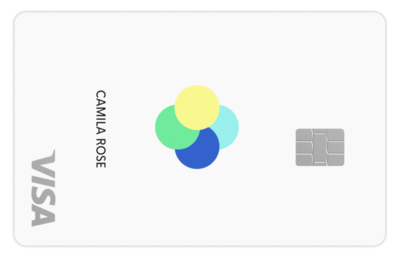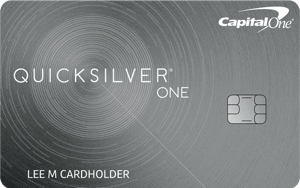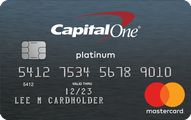
The best credit cards for fair and average credit of November 2019
If you have fair or average credit (generally 580 to 669, according to Experian), you don’t have to settle for a no-frills credit card with high fees.
There’s an assortment of credit cards designed for people with fair or average credit that still offer rewards programs, helpful perks, no annual fees and no foreign transaction fees.
While these cards might be easier to qualify for, they often come with high interest rates — but this shouldn’t be an issue if you pay your bill on time and in full. After all, your primary goal when signing up for a credit card should be to improve your score with responsible financial behavior, so it bumps up to a good score range (670 to 799).
Below, CNBC Select reviewed the best credit cards that give people with fair or average credit better qualification chances. (See our methodology for more information on how we choose the best cards.)
Keep in mind that card issuers don’t disclose exact credit score requirements and the ranges provided above should only be used as a guideline. If you’re unsure if you’ll qualify, you can fill out a pre-qualification form to check your odds.
Here are CNBC Select’s picks for the top credit cards for people with fair or average credit:
- Best for No Fees: Petal Visa Credit Card
- Best for Cash Back: Capital One® QuicksilverOne® Cash Rewards Credit Card
- Best for Travel: Capital One® Platinum Credit Card
- Best Secured card: Discover it® Secured
- Best for College Students: Deserve Edu Mastercard
Best for No Fees: Petal Visa Credit Card

Information about the Petal Visa Credit Card has been collected independently by CNBC and has not been reviewed or provided by the issuer of the card prior to publication.
-
Rewards
1% cash back on all purchases and 1.5% after you make 12 on-time monthly payments
-
Annual fee
-
Welcome bonus
-
Intro APR
-
Variable APR
-
Balance transfer fee
-
Foreign transaction fee
-
Estimated rewards earned after 1 year
-
Estimated rewards earned after 5 years
Pros
- No credit history required
- No fees whatsoever
- 1.5% cash back after making 12 on-time monthly payments
- Credit limits range from $500 to $10,000
Cons
- No special financing offers
- No welcome bonus
Who’s this for? The Petal Visa Credit Card is one of the few cards that charge no fees whatsoever. There are no annual fees, no late payment fees and no foreign transaction fees.
The application process for the Petal Visa Credit Card differs from most credit cards. Applicants link their bank accounts, and then Petal’s algorithm reviews the data, taking into account bill payments and earnings. This allows Petal to determine your eligibility from more than just your credit history. And if you have no credit history that’s OK — it’s not required. (It’s one of the reasons this card also tops our list of best cards for rebuilding your credit history.)
This card also has a rewards program: you can earn 1% cash back on all purchases, which rises to 1.5% after you make 12 on-time monthly payments. This is a great way to encourage responsible behavior, while earning cash back for everyday purchases.
Information about the Petal Visa Credit Card has been collected independently by CNBC and has not been reviewed or provided by the issuer of the card prior to publication.
Best for Cash Back: Capital One® QuicksilverOne® Cash Rewards Credit Card

Information about the Capital One® QuicksilverOne® Cash Rewards Credit Card has been collected independently by CNBC and has not been reviewed or provided by the issuer of the card prior to publication.
-
Rewards
1.5% cash back on all purchases
-
Welcome bonus
-
Annual fee
-
Intro APR
-
Variable APR
-
Balance transfer fee
-
Foreign transaction fee
-
Estimated rewards earned after 1 year
-
Estimated rewards earned after 5 years
Pros
- Unlimited 1.5% cash back on all purchases
- Redeem cash back at anytime and for any amount
- No fee charged on purchases made outside the U.S.
- Access a higher credit limit after making your first five monthly payments on time
Cons
- $39 annual fee
- 26.99% variable APR
- No welcome bonus
Who’s this for? Many of the best cash-back cards require good or excellent credit, but there are some cards for people with fair/average credit that offer good cash-back rates. Capital One® QuicksilverOne® Cash Rewards Credit Card gives consumers a competitive 1.5% cash back on all purchases, with no limit on the amount of cash back you can earn. And cash back can be redeemed at any amount, without the typical $25 minimum some other cards set.
This card has a $39 annual fee, but the average American can earn $289 a year in cash back, which is more than enough to offset the fee. After five years, you could earn $1,444.
The Capital One® QuicksilverOne® Cash Rewards Credit Card charges no foreign transaction fees and comes with travel accident insurance, auto rental collision damage waiver and 24-hour travel assistance services. Plus, you can get access to a higher credit limit after making your first five monthly payments on time.
Information about the Capital One® QuicksilverOne® Cash Rewards Credit Card has been collected independently by CNBC and has not been reviewed or provided by the issuer of the card prior to publication.
Best Secured Card: Discover it® Secured

-
Rewards
2% cash back at gas stations and restaurants on up to $1,000 in combined purchases each quarter (then 1%); unlimited 1% cash back on all other purchases
-
Welcome bonus
At the end of your first year, Discover automatically matches all the cash back you earned
-
Annual fee
-
Intro APR
10.99% for the first 6 months on balance transfers
-
Regular variable APR
-
Balance transfer fee
3% intro balance transfer fee, up to 5% fee on future balance transfers (see terms)*
-
Foreign transaction fee
-
Minimum security deposit
-
Maximum security deposit
Pros
- No annual fee
- Discover automatically reviews your credit card account monthly, starting at eight months, to see if your security deposit can be returned while you continue to enjoy your card benefits
- Cash-back rewards program
- Welcome bonus doesn’t have minimum spending requirements
Cons
- Low credit limit prevents cardholders from charging high-cost items or many expenses
- High 24.74% APR
Who’s this for? The Discover it® Secured Card is a best-in-class secured card offering cardholders the opportunity to build credit, earn rewards and easily transition to an unsecured card — all at no annual fee — and it tops our list of the best secured credit cards. Like most secured cards, you need to make a $200 security deposit to access a $200 credit limit. If you want a bigger credit limit, you’ll need to deposit more money (up to $2,500).
Cardholders earn 2% cash back at gas stations and restaurants on up to $1,000 in combined purchases each quarter (then 1%) and unlimited 1% cash back on all other purchases. There’s also a unique welcome bonus where Discover automatically matches any cash back you’ve earned after the first 12 billing cycles. If you earned $50 cash back at the end of the first year, Discover will give you an additional $50.
This card really sets itself apart from competing secured cards with the automatic monthly account reviews. Eight months after you open your card, Discover will look to see if you qualify to get your security deposit back, effectively transitioning you to an unsecured card. This takes the guesswork out of wondering when you should open an unsecured card.
CNBC Select doesn’t calculate the number of rewards you can earn with a secured credit card because the focus should be on building your credit history and practicing good financial habits rather than maximizing your rewards.
Best for Travel: Capital One® Platinum Credit Card

Information about the Capital One® Platinum Credit Card has been collected independently by CNBC and has not been reviewed or provided by the issuer of the card prior to publication.
-
Rewards
-
Welcome bonus
-
Annual fee
-
Intro APR
-
Variable APR
-
Balance transfer fee
-
Foreign transaction fee
Pros
- No annual fee
- No fee charged on purchases made outside the U.S.
- Travel benefits, such as travel accident insurance, auto rental collision damage waiver and roadside assistance
- Access a higher credit limit after making your first five monthly payments on time
Cons
- 26.99% variable APR
- No rewards program
Who’s this for? If you travel often, it’s a good idea to choose a card that provides travel benefits that can save you money and protect you against unexpected issues. The Capital One® Platinum Credit Card offers a variety of travel benefits — most notably no foreign transaction fees.
This perk will save you the typical 3% fee many other cards charge on each purchase made outside the U.S. For example, the average American spends $2,154 a year on travel, and depending on how much of that is done abroad, you could potentially save up to $65 with the Platinum Credit Card from Capital One® (and even more depending on your travel spending habits).
This card also offers travel accident insurance, auto rental collision damage waiver, roadside assistance and 24-hour travel assistance services — all at no extra cost, though third-party service fees apply for roadside assistance. These perks are a great way to make traveling less stressful and provide you with coverage for eligible issues.
This card doesn’t offer a rewards program, so you don’t have the opportunity to earn cash back, points or miles from your everyday spending. But with no annual fee, it can be a good starter card if you want to eventually upgrade to another card in the Capital One family.
Information about the Capital One® Platinum Credit Card has been collected independently by CNBC and has not been reviewed or provided by the issuer of the card prior to publication.
Best for College Students: Deserve Edu Mastercard

Information about the Deserve Edu Mastercard has been collected independently by CNBC and has not been reviewed or provided by the issuer of the card prior to publication.
-
Rewards
1% cash back on all purchases
-
Welcome bonus
-
Annual fee
-
Intro APR
-
Variable APR
-
Balance transfer fee
-
Foreign transaction fee
Pros
- No annual fee
- Free year of Amazon Prime Student (up to $59)
- No social security number needed to apply
- No credit history required
Cons
- No special financing offers
- No welcome bonus
Who’s this for? The Deserve Edu Mastercard is one of our top picks for college students looking to build credit, earn rewards and benefit from money-saving perks. This card has no annual fee and offers 1% cash back on all purchases. While the rewards rate isn’t the most competitive, you can also benefit from a free year of Amazon Prime Student (up to $59), which is a great way to enjoy free two-day shipping, discounts at Whole Foods Market and access to Prime Video.
This card is also good for international students since a social security number isn’t required. Plus, you don’t need to have a credit history. You do need to be over 18, enrolled in college and have a U.S. bank account.
Deserve doesn’t charge any foreign transaction fees, which is helpful if you do a semester abroad or travel outside the U.S. during school breaks.
CNBC Select doesn’t calculate the number of rewards you can earn with a student credit card because the focus should be on building your credit history and practicing good financial habits rather than maximizing your rewards.
Information about the Deserve Edu Mastercard has been collected independently by CNBC and has not been reviewed or provided by the issuer of the card prior to publication.
Our methodology
To determine which credit cards offer the best value for people with average or fair credit, CNBC Select analyzed the most popular credit cards offered by the biggest banks, financial companies, and credit unions that we determined have average or fair credit score requirements.
We compared each card on a range of features, including: annual fee, rewards program, introductory and standard APR, balance transfer fee, welcome bonuses and foreign transaction fees, as well as factors such as required credit and customer reviews when available.
CNBC Select teamed up with location intelligence firm Esri. The company’s data development team provided the most up-to-date and comprehensive consumer spending data based on the 2018 Consumer Expenditure Surveys from the Bureau of Labor Statistics. You can read more about their methodology here.
Esri’s data team created a sample annual budget of approximately $21,852 in retail spending. This budget is comprised of the most common spending categories, including groceries ($5,019), gas ($2,394), dining out ($3,365), travel ($2,154), utilities ($4,959) and general purchases ($3,961). General purchases include items such as housekeeping supplies, clothing, personal care products, prescription drugs and vitamins, and other vehicle expenses.
CNBC Select used this budget to estimate how much the average consumer would save over the course of a year, two years and five years, assuming they would attempt to maximize their rewards potential by earning all welcome bonuses offered and using the card for all applicable purchases. All rewards total estimations are net the annual fee.
It’s important to note the value of a point or mile varies from card to card and based on how you redeem them. When we calculated the estimated returns, we assumed that cardholders are redeeming points/miles for a typical maximum value of 1 cent per point or mile. (Extreme optimizers might be able to achieve more value.)
While the five-year estimates we’ve included are derived from a budget similar to the average American’s spending, you may earn a higher or lower return depending on your shopping habits.
When analyzing student cards and secured cards, we did not calculate the estimated rewards a cardholder could earn. When you’re a student or building (or rebuilding) your credit history, your focus should be on developing good financial habits, such as paying your balance on time and in full, and not optimizing the points you can earn.
Best credit cards for fair/average credit
| Best for… | Credit Card |
|---|---|
| No Fees | Petal Visa Credit Card |
| Cash Back | Capital One® QuicksilverOne® Cash Rewards Credit Card |
| Travel | Capital One® Platinum Credit Card |
| Secured | Discover it® Secured |
| College Students | Deserve Edu Mastercard |
Editorial Note: Opinions, analyses, reviews or recommendations expressed in this article are those of the CNBC Select editorial staff’s alone, and have not been reviewed, approved or otherwise endorsed by any third party.






